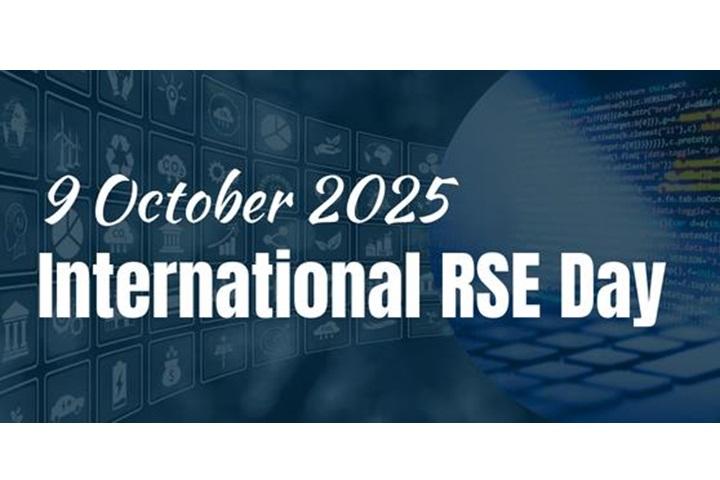Celebrating International Research Software Engineering (RSE) Day

By Anelda Van der Walt
Behind discoveries like mapping the universe, modelling climate change, or advancing medical research, lies something (and someone) often unseen: research software* and the people who build it.
On International Research Software Engineering (RSE) Day - the second Thursday in October each year – UCT eResearch is excited to pause for a moment, to shine a light on these critical research enablers. This day is about making the code and its contributors visible and giving credit where it is overdue.
From astronomy to health sciences, engineering to the humanities, research increasingly depends on code, workflows and software. These digital tools power data analysis, enable advanced simulations and make reproducible and trustworthy science possible. Despite the significance of research software in the global research enterprise, it is still not accepted as a first-class research output alongside datasets and peer-reviewed publications.
As for the people who design, develop and maintain the software, they often don’t follow traditional academic career paths, which impacts their visibility, recognition, and access to sustainable career opportunities. This lack of acknowledgement not only undervalues their contribution, but also poses a risk to the long-term sustainability and reproducibility of the research itself.
Research software at UCT
At UCT, the eResearch Centre wants to work closely with researchers who develop and maintain software as part of their projects. The goal is to strengthen local capacity, foster a network of RSE practitioners, and align with international best practices. By building a community of practice, offering training, and creating opportunities for collaboration, it is ensured that research software remains a robust pillar of South Africa’s digital research infrastructure.
“Research software is as fundamental to modern science as laboratories or telescopes,” Professor Mattia Vaccari, director of the UCT eResearch Centre, emphasises. “At UCT, we are exploring new ways of ensuring that the people who create and maintain this software are recognised as essential contributors to the research enterprise, while also advocating for the recognition of research software as a first-class research artefact.”
Anelda van der Walt, Senior Research Analyst at UCT eResearch, agrees. “International RSE Day gives us a chance to celebrate the invisible work that makes world-class science possible,” she says. “By building stronger networks, advocating for career pathways, and sharing best practices, we can ensure that South African research software engineers are visible and supported and the software they develop are FAIR (Findable, Accessible, Interoperable, and Reusable) where it makes sense to do so.”
Looking ahead
Research software is central to UCT’s ambition to support excellence, sustainability, and transformation in research. Not only the work of dedicated RSEs at UCT is celebrated, but also those of our peers across South Africa, the continent and the world.
To help bring South African research software and its people to the spotlight, UCT eResearch is contributing to the upcoming International Research Software Survey, which will gather vital data on the experiences, challenges, and practices of research software engineers in South Africa and globally.
In November, UCT eResearch will also host the first Research Software Symposium on the African continent, bringing together researchers, funders, policymakers, and software practitioners to highlight the role of research software and chart a path toward stronger recognition and support for those who build it.
Titled “Research workflows, code and software – critical pillars of South African digital and open research infrastructure” this half-day event is co-hosted in collaboration with IDIA, CBIO, UCT ICTS and UWC, and aims to share insights, tackle challenges and shape the future of research software.
“In celebrating today,” Prof. Vaccari said, “UCT eResearch acknowledges the contributions of the global RSE community and supports efforts to enhance the visibility and recognition of research software engineers and their work”.
* Research Software includes source code files, algorithms, scripts, computational workflows and executables that were created during the research process or for a research purpose. (Gruenpeter, M. et al. (2021) “Defining Research Software: a controversial discussion”.)
